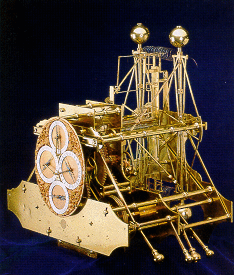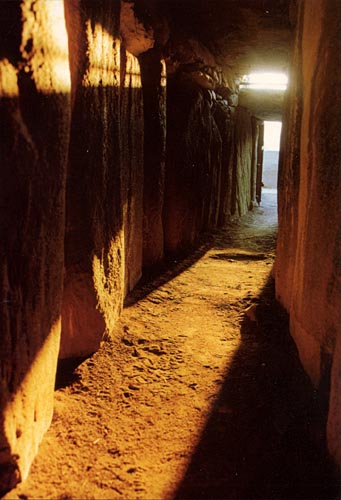

the Maya calendar ends (December 21, 2012)
the Y2K bug (1999-2000) turned out not to have occurred on most computers
Swatch Internet Time (1998)
The Long Now Foundation (1996)
Stephen Hawking's Brief History of Time (1988)

Back to the Future (1985)
Unix time (1971)
Temporal logic (1960s)
digital clocks (1956)
the atomic clock (1955)

La persistencia de la memoria (1931)
most major countries adopted hourly time zones by (1929)
Georges Lemaître (1927) derived the Friedmann-Lemaître-Robertson-Walker equations
from Albert Einstein's equations of general relativity and proposed, that the Universe
began with the "explosion" of a "primeval atom" - what was later called the Big Bang

Daylight saving time (1916)
John McTaggart's A-series and B-series (1908)
Spacetime (1905)

the first time clock was invented (November 20, 1888) by Willard Bundy, a jeweler in Auburn, New York
Nietzsche resurrected the thought of eternal recurrence (1882)
Hippolyte Fizeau (1850) measured the speed of light and electricity

the French Revolutionary Calendar (October 24, 1793)
was adopted by the Jacobin-controlled National Convention
the Critique of Pure Reason (1781)

the Harrison H4 (1761)

the chronometer (1730)
Ole Rømer made the first quantitative measurements of the speed of light (1676)
Greenwich Mean Time (1675)

the pendulum clock (1656) was patented to Christiaan Huygens
Archbishop Ussher estimated by reading the Bible (1650) that
the earth was created on October 23, 4004 BC at 9:00am

Venice (1522) adopted the Gregorian calendar. Other countries following suit were:
Germany (1544) Spain, Portugal, Netherlands (1556), Prussia Denmark, Sweden (1559),
France (1564), Scotland (1600) Russia (1721) and England (1752). The calendar was
decreed by Pope Gregory XIII, for whom it was named, on February 24, 1582
the Alfonsine tables (1252)
the Muslim calendar (July 16, 622)

Dionysius Exiguus (525) recorded in his Easter Tables Jesus of Nazareth's birthday as December 25, 753
years after Rome was founded. The error, an incorrect year and date, was repeated in all Christian calendars
computus (154)
Liu Xin's Triple Concordance (8)
the four year - leap year cycle (8 bc)
the roman month Sextilis was renamed (8 bc) in honor of Augustus
the Julian calendar was introduced by Caesar in 46 bc, taking force in 45 bc
in Egypt, sundials (1500 bc) which divide thttp://en.wikipedia.org/wiki/Sundialhe time from
sunrise to sunset into 12 equal periods, are used to tell time

solar alignments of ritual sites (3200 bc)
beginning of the epoch of the Hebrew calendar (October 7, 3761 bc)
Egyptians (4236 bc) introduced the first solar calendar